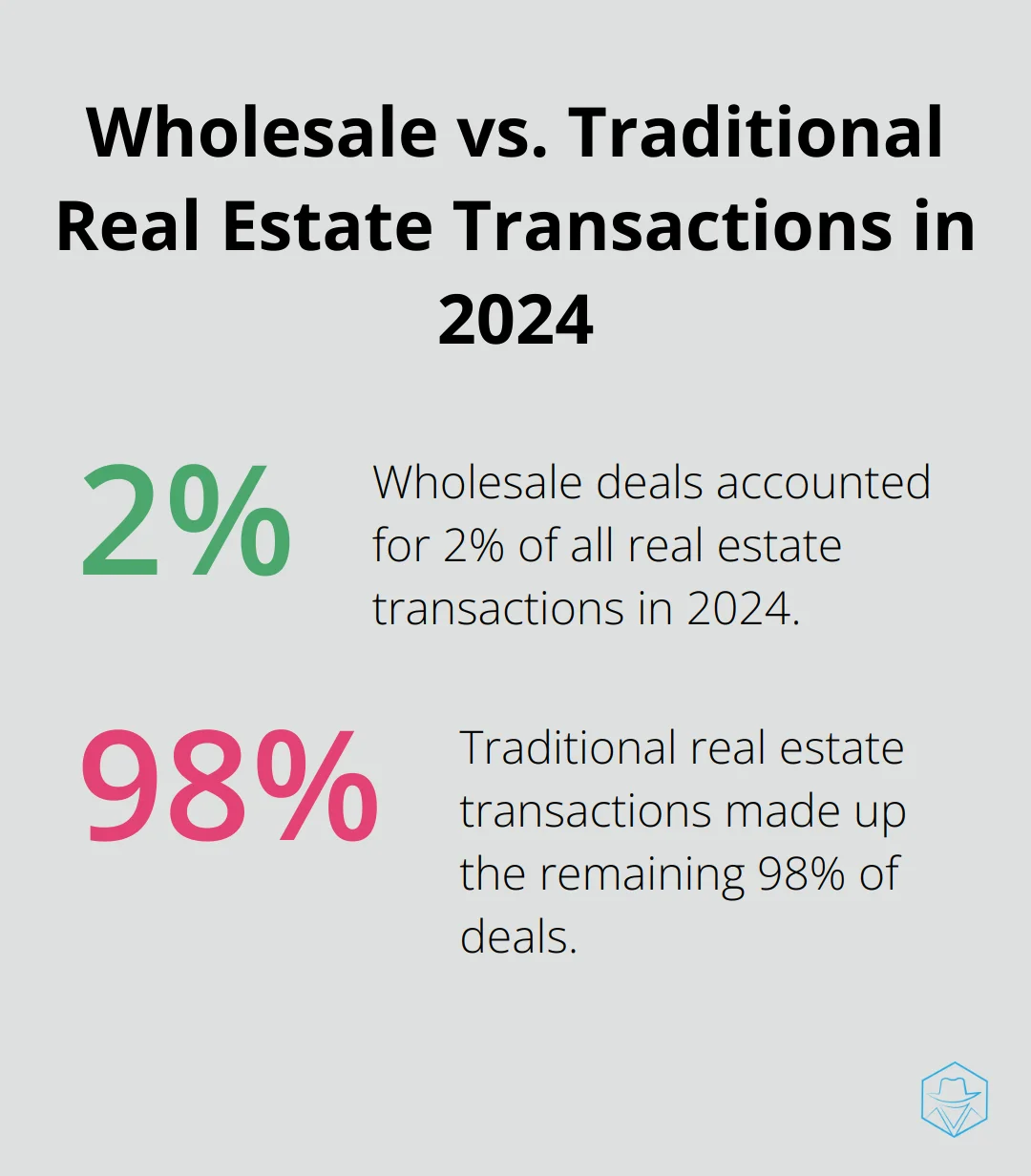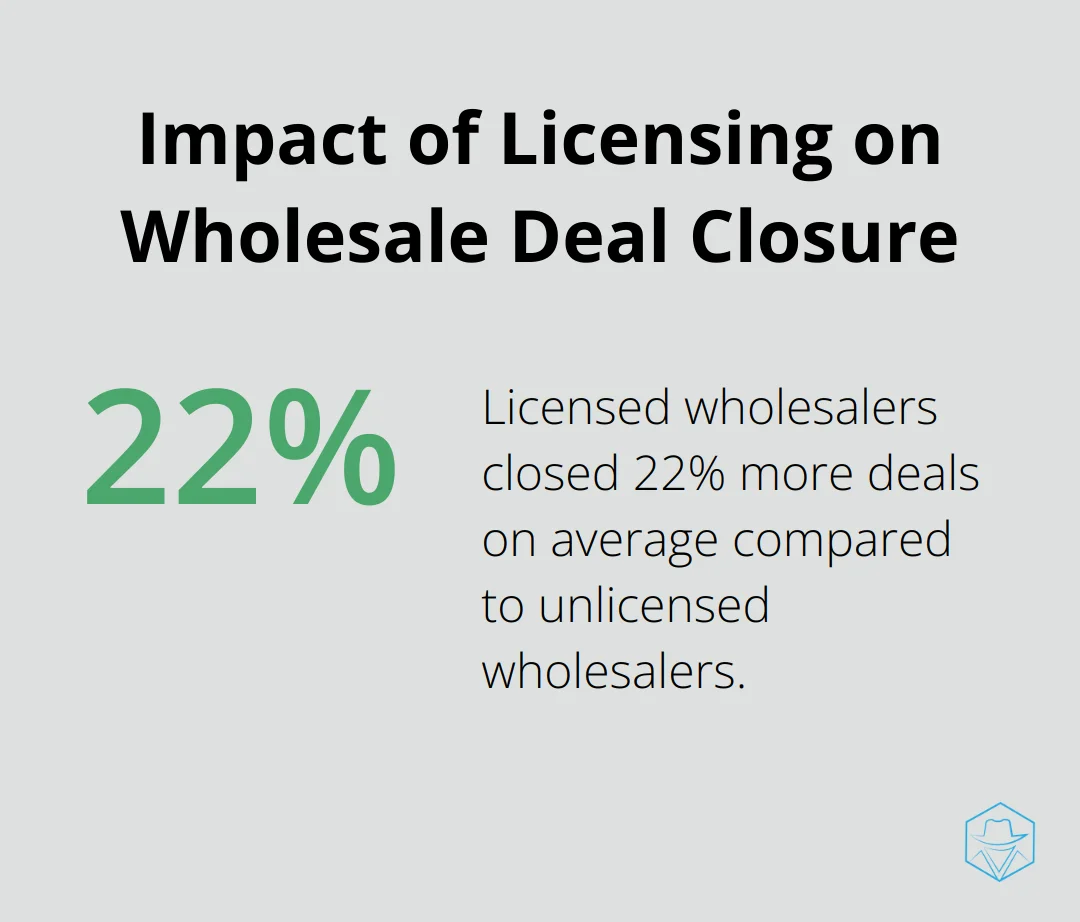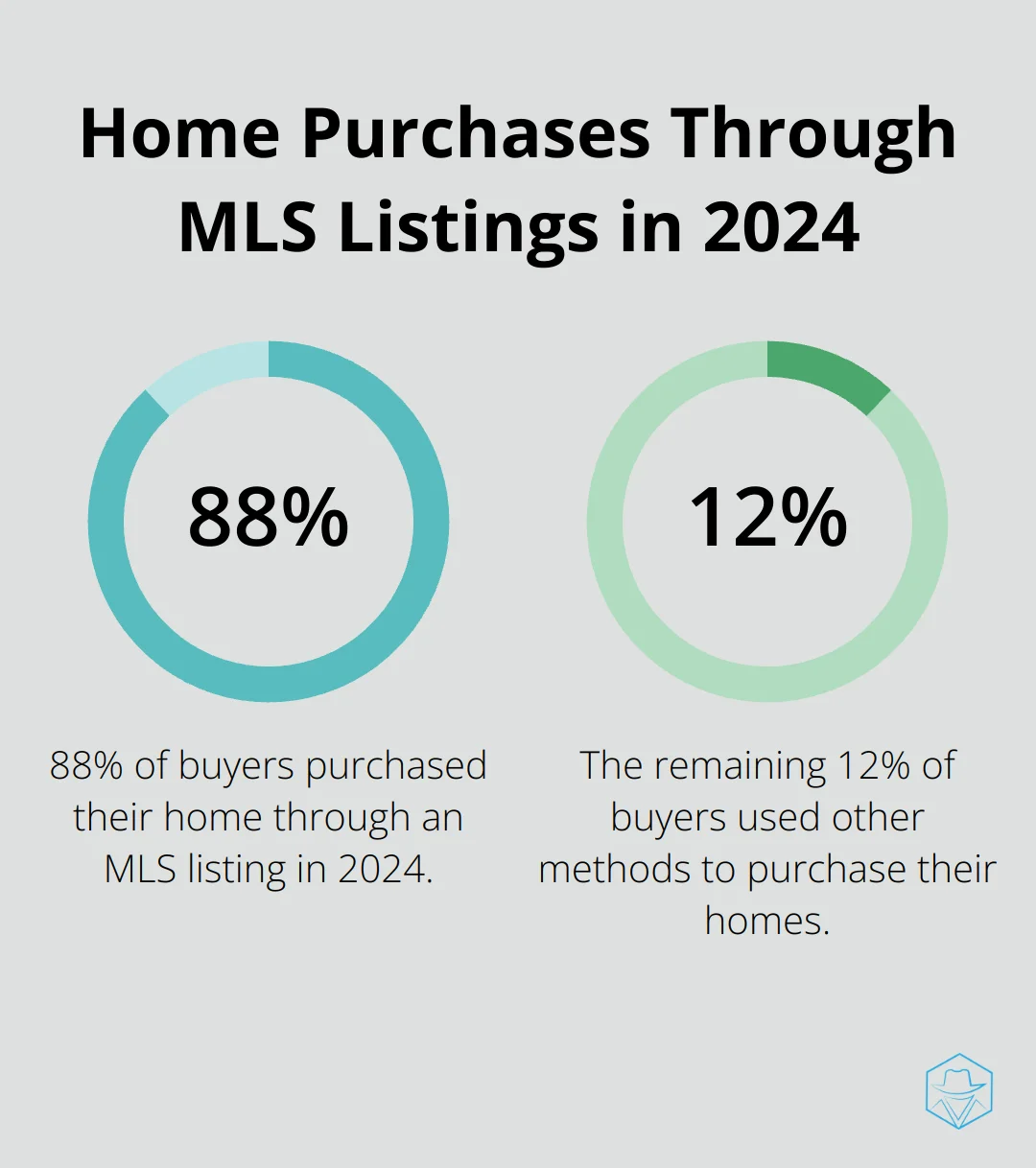Do You Need a License for Wholesale Real Estate?

At Drop Cowboy, we often get asked: “Do you need a real estate license to wholesale?” It’s a common question in the world of real estate investing.
Wholesale real estate can be a lucrative business, but navigating the legal requirements can be tricky. In this post, we’ll explore the licensing requirements for wholesale real estate and help you decide if getting licensed is the right move for your business.
What Is Wholesale Real Estate?
Definition and Concept
Wholesale real estate is a strategy where investors locate undervalued properties and sell them to other investors without purchasing the property themselves. This method has gained popularity among real estate entrepreneurs who want to enter the market with minimal capital investment.
The Wholesale Process
In a typical wholesale transaction, the wholesaler identifies a distressed property and negotiates a purchase agreement with the seller. Instead of buying the property outright, they assign their rights in the contract to another investor for a fee (often called the assignment fee). This fee represents the wholesaler’s profit.
The National Association of Realtors reports that wholesaling accounted for approximately 2% of all real estate transactions in 2024. While this percentage might seem small, it represents a significant opportunity for savvy investors.

Wholesale vs. Traditional Real Estate
The key difference between wholesale and traditional real estate lies in property ownership. Traditional real estate transactions involve buying a property and then selling it for a profit. Wholesalers, on the other hand, never take ownership of the property.
This distinction has important implications:
- Capital requirements: Wholesaling requires far less capital than traditional real estate investing. You don’t need to secure financing or have cash on hand to purchase properties.
- Time frame: Wholesale deals typically close much faster than traditional sales. The National Association of Realtors reports that the average time to close a wholesale deal is 14 days, compared to 47 days for traditional sales.
- Risk: Wholesalers face less financial risk since they’re not responsible for property repairs, maintenance, or holding costs.
Legal Considerations
It’s important to understand that wholesaling operates in a legal gray area in some states. For example, in Illinois, anyone conducting more than one wholesale deal per year must have a real estate license. Always check your local laws before engaging in wholesale real estate activities.
Communication Tools for Wholesalers
Effective communication is key in wholesale real estate. Tools like ringless voicemail can help you reach out to property owners without being intrusive, potentially increasing your chances of finding great deals. (Drop Cowboy offers such features, which can be particularly useful for wholesalers looking to streamline their outreach efforts.)
As we move forward, it’s essential to consider the licensing requirements for wholesale real estate. These requirements vary by state and can significantly impact how you operate your wholesale business.
Navigating Licensing Laws for Wholesale Real Estate
State-Specific Regulations
Wholesale real estate licensing requirements vary significantly across the United States. Most states don’t explicitly require a license for wholesaling, but the legal landscape remains complex and changes frequently.
Illinois stands as the only state that explicitly requires a real estate license for individuals who conduct more than one wholesale deal per year. This law, enacted in 2019, has set a precedent that other states now watch closely.
Kentucky recently tightened its regulations. As of 2023, Kentucky law mandates that wholesalers must possess a real estate agent or broker license to operate. This shift highlights the importance of staying informed about your state’s specific requirements.
The Gray Area of Wholesaling
Many states fall into a legal gray area when it comes to wholesaling. For example, California requires wholesalers to be transparent about their intent to assign contracts to third parties when dealing with sellers. This requirement doesn’t necessarily mean you need a license, but it emphasizes the importance of ethical practices.
Arizona has introduced similar disclosure requirements. Wholesalers in the state must clearly explain their role in the transaction to both sellers and buyers. While not a licensing requirement per se, these regulations underscore the growing scrutiny on wholesale practices.
Mitigating Legal Risks
To navigate these complex waters, consider these key strategies:
- Consult with a local real estate attorney: Laws vary not just by state, but sometimes by county or city. A local expert can provide the most up-to-date and relevant advice.
- Maintain transparency: Even in states without explicit licensing requirements, openness about your role as a wholesaler can help you avoid legal troubles.
- Consider getting licensed: While not always necessary, obtaining a real estate license can provide additional credibility and open up new opportunities in your wholesale business.
- Stay informed: Real estate laws evolve constantly. Check for updates in your area regularly and consider joining local real estate investment groups for the latest information.
Communication Tools for Wholesalers
Effective communication plays a key role in wholesale real estate. Tools like ringless voicemail can help you reach out to property owners without being intrusive, potentially increasing your chances of finding great deals. (Some platforms offer such features, which can streamline outreach efforts for wholesalers.)
As we move forward, let’s explore the pros and cons of obtaining a real estate license for wholesale operations, and how this decision can impact your business strategy.
To License or Not to License: Weighing Your Options in Wholesale Real Estate
The Benefits of Obtaining a License
A real estate license can provide significant advantages in the wholesale market. Licensed wholesalers gain access to the Multiple Listing Service (MLS), a powerful tool for identifying potential deals and buyers. The National Association of Realtors reports that 88% of buyers purchased their home through an MLS listing in 2024, highlighting its importance.
Licensing also boosts credibility. Sellers and buyers often prefer to work with licensed professionals, which can lead to more deals and higher profits. A study by the Real Estate Wholesalers Association found that licensed wholesalers closed 22% more deals on average compared to their unlicensed counterparts.

The Challenges of Licensing
Despite its benefits, licensing comes with its own set of challenges. The process of obtaining and maintaining a license requires time and financial investment. On average, it costs between $500 to $1,200 to get licensed (not including ongoing education requirements and renewal fees).
Licensed wholesalers face stricter regulations and oversight. They must disclose their licensed status in all transactions, which can sometimes deter motivated sellers seeking quick, discreet sales. Additionally, licensed professionals may be held to a higher standard of care, potentially increasing their liability in transactions.
Alternatives to Licensing
For those who choose to operate without a license, several alternatives exist. Partnering with a licensed real estate agent can provide many licensing benefits without the personal commitment. This arrangement typically involves a fee-sharing agreement, where wholesalers might pay 25-30% of their assignment fee to the licensed partner.
Another option involves focusing on building a strong network of buyers and sellers. Networking events, social media marketing, and targeted advertising can help wholesalers find deals without relying on MLS access. (Tools like ringless voicemail can be particularly effective for reaching out to potential sellers without being intrusive.)
Factors to Consider
When deciding whether to obtain a license, wholesalers should consider several factors:
- Local regulations: Some states have stricter requirements for wholesalers than others.
- Business goals: A license might align better with long-term expansion plans.
- Available resources: The time and money required for licensing should be weighed against potential benefits.
- Market competition: In highly competitive markets, a license might provide a necessary edge.
Staying Compliant
Regardless of licensing status, wholesalers must prioritize legal compliance and ethical business practices. This includes transparent communication with all parties involved in transactions and staying informed about local real estate laws and regulations.
Final Thoughts
The question “Do you need a real estate license to wholesale?” lacks a universal answer due to varying state regulations. Most states don’t require a license for wholesaling, but recent changes in Kentucky and Illinois highlight the evolving legal landscape. Wholesalers must prioritize transparency, ethical practices, and adherence to local laws, regardless of their licensing status.
The decision to obtain a real estate license depends on individual business goals, local regulations, and available resources. While licensing offers benefits like MLS access and increased credibility, it also involves additional responsibilities and costs. Consulting with a local real estate attorney can provide clarity on specific requirements in your area.

Effective communication remains essential in wholesale real estate. Drop Cowboy offers tools like ringless voicemail and SMS integration to streamline outreach efforts and enhance marketing strategies. These features can help wholesalers connect with potential sellers and buyers more efficiently (without the need for intrusive cold calls).
blog-dropcowboy-com
Related posts

May 19, 2025
Looking for a Slydial Alternative? Discover How Drop Cowboy Delivers Direct Voicemail Better
Explore Slydial alternatives with Drop Cowboy’s superior direct voicemail services for seamless communication and enhanced delivery.

August 4, 2025
What does it mean when the call goes straight to voicemail
Understand why calls go straight to voicemail, from network issues to phone settings, and learn ways to manage this in our insightful blog post.

March 9, 2025
Top Ringless Voicemail Drop Software Solutions
Explore top ringless voicemail drop software for efficient customer outreach and boost engagement in your communication strategy.

August 11, 2025
Voicemail marketing system
Boost engagement and outreach with an effective voicemail marketing system. Learn practical strategies and tools for successful voice campaigns.

September 3, 2025
Unlocking Insights from Your Ringless Voicemail Analytics
Boost business growth by leveraging ringless voicemail analytics for actionable insights. Discover how data transforms communication strategies effectively.

March 22, 2025
Embedded iPaaS: Streamlining Integration Processes
Simplify integration with Embedded iPaaS. Explore how this approach can enhance efficiency, flexibility, and connectivity across systems.